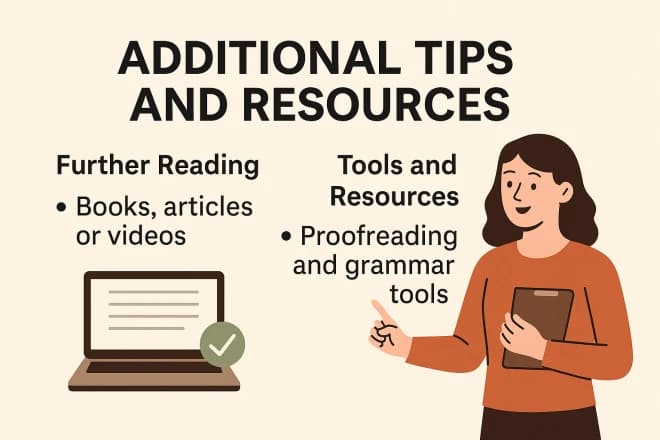Unlock Insights: Find the Answers You Seek on Our Blog
Crafting Rhymes for “Shock” in Your Poem
By Evelyn Sterling

Welcome to the Ultimate Guide to Rhyming with “Shock”!
Rhymes are one of the most powerful tools in poetry. They create rhythm, make your lines memorable, and add a sense of flow to your work. When you use rhymes effectively, they can bring your poem to life and make it enjoyable to read out loud.
The beauty of rhymes lies in their ability to connect words and ideas. Whether you’re telling a story, expressing emotions, or painting a vivid picture with your words, rhymes help create harmony and structure. They also make your poem easier for readers to follow and appreciate.
The word “shock” is a fantastic example for rhyming. It’s short, impactful, and can be used in a variety of contexts. Whether you’re writing about a sudden surprise, a dramatic event, or even the ticking of a clock, “shock” opens the door to countless creative possibilities. Let’s explore how you can use rhymes with “shock” to make your poetry shine!
Words That Rhyme with “Shock”
Finding rhymes for “shock” can be a fun and creative part of writing poetry. Let’s explore some options that will make your lines flow naturally and sound great.
Perfect Rhymes
Perfect rhymes are words that sound exactly like “shock” at the end. These are great for creating a strong rhythm and clear connection between lines. Some examples include:
- Block: “We built a tower with every block, until it tumbled, what a shock!”
- Clock: “The ticking hands upon the clock, counted down to the final shock.”
- Dock: “We tied our boat down at the dock, waiting calmly for the shock.”
- Flock: “The birds all moved in one big flock, startled by a sudden shock.”
- Lock: “The door creaked open, despite the lock, revealing secrets full of shock.”
- Rock: “She sat alone on a quiet rock, her mind reeling from the shock.”
- Stock: “The market fell, losing all stock, leaving investors in pure shock.”
Near Rhymes
Near rhymes don’t match perfectly but still sound similar. These can add a softer, more subtle touch to your poetry:
- Chalk: “On the blackboard, she wrote with chalk, her words hinting at the shock.”
- Talk: “We sat together to calmly talk, but still couldn’t escape the shock.”
- Walk: “A lonely figure went for a walk, unaware of the coming shock.”
- Mock: “They laughed aloud, ready to mock, until they faced a real shock.”
Multisyllabic Rhymes
These are longer phrases or words that rhyme with “shock” and can give your poem more complexity:
- Tik-tock: “The clock’s soft sound, tik-tock, echoed warnings of the shock.”
- Hemlock: “In the forest, beneath the hemlock, danger brewed, leading to shock.”
- Gridlock: “The city streets were in gridlock, as horns blared in a state of shock.”
These rhymes can be mixed and matched depending on your poem’s mood and style. Try them out and see how they transform your creative ideas!
Using Rhymes with “Shock” in Context
Once you’ve found rhyming words for “shock,” the next step is weaving them into your poetry. Context matters, and the way you use rhymes can change the tone and feel of your poem. Let’s look at some examples to inspire your writing.
Perfect Rhymes in Action
Perfect rhymes create a crisp, structured flow in your poem. Here’s an example:
- “The ticking of the old wall clock,
- Echoed with a sense of shock.”
This line is simple but effective. The rhyme between “clock” and “shock” makes the sentence memorable and easy to read.
Near Rhymes for Subtlety
Near rhymes can add a softer, more conversational tone to your poetry. Here’s an example:
- “The silence broke when we began to talk,
- A voice as steady as a midnight walk.”
The words “talk” and “walk” don’t rhyme perfectly with “shock,” but they still maintain a harmonious sound. This approach is perfect for a poem with a more natural, flowing rhythm.
Multisyllabic Rhymes for Creativity
For a more complex and unique touch, try multisyllabic rhymes:
- “A forest dense with ancient hemlock,
- Hiding secrets that could truly shock.”
Here, “hemlock” pairs with “shock” to create a vivid, mysterious image. Multisyllabic rhymes can add depth and make your poem stand out.
By experimenting with these different types of rhymes, you can shape the tone, rhythm, and emotion of your poem. Give them a try and see how they fit into your creative vision!

Tips for Seamless Rhyming in Poetry
Rhyming can make your poetry more engaging, but it’s important to use it in a way that feels smooth and natural. Here are some tips to help your rhymes blend seamlessly into your poems.
1. Avoid Forced Rhymes
One of the biggest mistakes in poetry is forcing a rhyme just because it matches the sound. Forced rhymes can make your lines feel awkward or unnatural. Instead, let your rhymes flow naturally within the context of your poem. For example, if “shock” doesn’t fit the story you’re telling, don’t hesitate to use a near rhyme or change the direction of your verse.
2. Experiment with Word Order
Sometimes, changing the order of words in your sentence can help the rhyme fit better without disrupting the meaning. For instance:
- Forced rhyme: “I opened the door with a heavy lock,
Only to feel a great shock.” - Improved rhyme: “The heavy lock opened the door,
A great shock awaited once more.”
By rearranging the words, the lines feel more natural and balanced.
3. Use Rhymes to Enhance the Message
Rhymes should support the story or emotion you’re trying to convey, not distract from it. Don’t let the rhyme take over your poem. Focus on the theme, imagery, and flow, and let the rhymes come second. For example, in a poem about nature, using subtle rhymes like “walk” and “talk” can enhance the peaceful tone without overpowering it.
By following these tips, you’ll create rhymes that not only sound good but also add depth and meaning to your poetry. Practice makes perfect, so keep experimenting!
Exploring Themes That Pair Well with “Shock”
The word “shock” is versatile and can be used in a wide range of themes to create vivid, emotional poetry. Here are some ideas to inspire you.
1. Emotional Themes: Surprise, Awe, Fear
“Shock” is perfect for exploring strong emotions. It can describe a sudden realization, an overwhelming sense of awe, or even the fear of the unknown. For example:
“Her words hit like a lightning shock,
Leaving my thoughts in a frozen block.”
This theme is great for capturing the intensity of human experiences, like heartbreak, unexpected joy, or betrayal.
2. Nature-Inspired Themes: Storms, Earthquakes, Lightning
Nature is full of dramatic moments that fit well with “shock.” From the crash of thunder to the tremor of an earthquake, these natural events can evoke powerful imagery. For example:
“The storm roared on with a thunderous shock,
Splitting the sky like a shattered rock.”
Using nature as a backdrop can make your poem feel grand and immersive.
3. Everyday Scenarios: Alarms, Surprises, Sudden Events
“Shock” also works well for more relatable, everyday moments. Think about an unexpected alarm, a sudden surprise, or even a minor accident. For example:
“The fire alarm blared at eight o’clock,
Jarring my morning with its shrill shock.”
These themes make your poetry accessible and easy for readers to connect with.
By focusing on these themes, you can make the word “shock” a central piece of your poem, adding emotional depth and engaging imagery. Whether dramatic or subtle, the choice is yours!

Tools and Resources for Finding Rhymes
Finding the perfect rhyme doesn’t have to be a challenge. With the right tools and resources, you can quickly discover rhyming words and unlock new poetic ideas. Here are some helpful options:
1. Online Rhyme Dictionaries and Tools
The AI Rhyme Generator is a online rhyming words generator tool. It is designed to revolutionize the world of writing and lyrical creation. Whether you’re a seasoned poet, a budding songwriter, or someone who simply appreciates the beauty of well-crafted verses, this word rhyming generator tool is tailored to meet your needs.
Simply type in your word (like “shock”), and they’ll give you a list of perfect rhymes, near rhymes, and phrases. These tools save time and often suggest words you might not have thought of on your own.
2. AI Poem Generator
It is specifically designed for poetry creation. This tool leverages artificial intelligence and natural language processing to create poetry. By inputting specific parameters or themes, users can generate poems that align with their creative vision. Writing prompts push you to think beyond simple rhymes and focus on the bigger picture.
3. AI Tools for Poetry Assistance
AI tools like ChatGPT or dedicated poetry apps can provide rhyming suggestions, write example lines, or even help edit your work. For instance, if you’re stuck finding a rhyme for “shock,” an AI can offer suggestions like “block,” “rock,” or “tick-tock.” These tools are great companions for brainstorming and refining your poetry.
Using these resources makes the process of writing poetry easier and more enjoyable. Whether you need rhymes, inspiration, or an extra pair of “eyes,” these tools have you covered!
Conclusion
Rhyming is a powerful way to enhance your poetry, but it works best when it feels natural and supports your message. By exploring perfect rhymes, near rhymes, and creative multisyllabic options, you can bring depth and rhythm to your work. Don’t be afraid to experiment and practice—every attempt sharpens your skills. With time and creativity, your rhymes will flow effortlessly, making your poetry both impactful and memorable.
AI Tools Categories
Browse all AI tools by category
All AI Tools
229Amazon
5AI Writing Generator
85Article & Content Writing
35Branding & Identity
54Content Generation
170Creative Ideas
32Educational Resources
34E-commerce
14Etsy
6Events & Celebrations
13Facebook
6Gaming & Fun
5Instagram
3Lifestyle & Personal
8LinkedIn
6Marketing & SEO
40Poem & Lyrics Writing
19Professional Documents
31Social Media
44Story & Book Writing
49Text Effects
14TikTok
7Twitter
3Writing Enhancement
36YouTube
11
Highly rated and most popular AI tools curated by our experts
Recently added AI tools that are gaining traction
- AI Post Generator

- AI Bullet Point Generator

- AI Discussion Post Generator

- AI 2 Weeks Notice Letter Generator

- AI Content Creation Ideas Generator

- AI Radio Ad Script Generator

- AI Podcast Script Generator

- AI Resume Objective Generator

- AI Resume Headline Generator

- AI Password Generator

- AI Snapchat Caption Generator

- AI Snapchat Username Generator

- AI Pinterest Board Name Generator

- AI LinkedIn Experience Description Generator

- AI Twitter Hashtag Generator

- AI YouTube Short Idea Generator

we prioritize displaying the latest content closely related to the current blog post.







